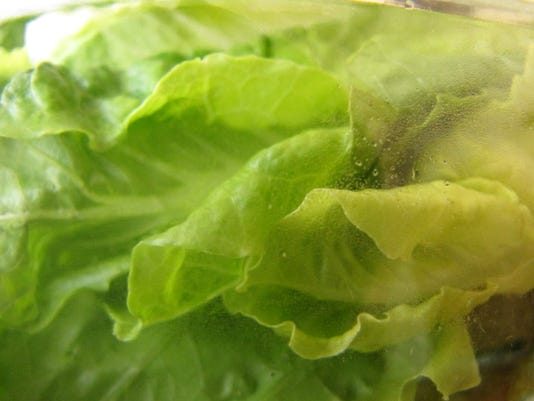What is the risk? Should we take our chances and hope our salad was safe to eat? Who can you trust regarding food safety? And what the heck is Cyclospora?
Here's a segment of the USA Today report on August 30:
"An outbreak of a diarrheal disease that has sickened 372 people in 15 states since June may be linked to a bagged salad mix.Neither state nor federal agencies have named the manufacturer or salad mix that was contaminated with the cyclospora. It is safe to expect that most salads contaminated have expired and should be discarded (the contamination dates back to June 28, 2013).
"The evidence points to a salad mix containing iceberg and romaine lettuce, as well as carrots and red cabbage, as the source of the outbreak reported in Iowa and Nebraska," Steven Mandernach, chief of the Food and Consumer Safety Bureau of the Iowa Department of Inspections and Appeals, said in a release Tuesday.
"The investigation by Iowa and Nebraska health officials found that at least 80% of people in those states infected in the cyclospora outbreak had eaten a prepackaged salad mix.
"A seven-person Food and Drug Administration team has begun a trace-back investigation to identify where the ingredients in the salad mix came from.
"Cyclospora is an intestinal illnesses caused by the microscopic parasite Cyclospora cayetanensis. It is transmitted when feces enter the food or water supply and are consumed. The disease causes watery and sometimes explosive diarrhea and is treated with antibiotics. Symptoms can also include fatigue, anorexia, bloating, stomach cramps, vomiting, muscle aches and a low fever.
"Cases have been reported in Arkansas, Connecticut, Florida, Georgia, Illinois, Iowa, Kansas, Minnesota, Missouri, Nebraska, New Jersey, New York, Ohio, Texas and Wisconsin. Health officials do not know whether all the reported cases are part of the same outbreak."
For consumers the first act of caution should be discarding any expired packaged produce. When shopping always check expiration dates and be certain the produce you purchase has been refrigerated. Experts generally agree that salads labeled "washed" or "triple-washed" do not need to be washed again at home.
The Food Safety and Nutrition Department at Clemson University addresses the issue of safe handling of lettuce and leafy greens in a 2012 publication. They advise:
“Ready to Eat” Lettuce/Leafy Green SaladClemson has provided the full text of this two-page publication in a convenient downloadable PDF for reference in your own kitchen. Link below:
If a “ready to eat” lettuce or leafy green salad is received in either a sealed bag or rigid plastic container labeled "washed", "triple washed" or "ready-to-eat" it does not need additional washing before you eat it unless specifically directed on the label. Washing ready-to-eat green salads is not likely to enhance safety. Furthermore, the risk of cross contamination from handling and food contact surfaces may outweigh any safety benefit that further washing may have.
If you choose to wash “ready to eat” lettuce or salad before use, wash your hands thoroughly with soap and warm water for at least 20 seconds before handling and rewash hands as necessary. Clean the sink, colander, salad spinner and any utensils that will contact the lettuce with hot soapy water. Use cold running water to wash lettuce/leafy green salads to reduce the potential for cross contamination. Dry in a clean salad spinner or wipe dry with a paper towel that has not been previously used for another purpose."
Download the PDF


No comments:
Post a Comment